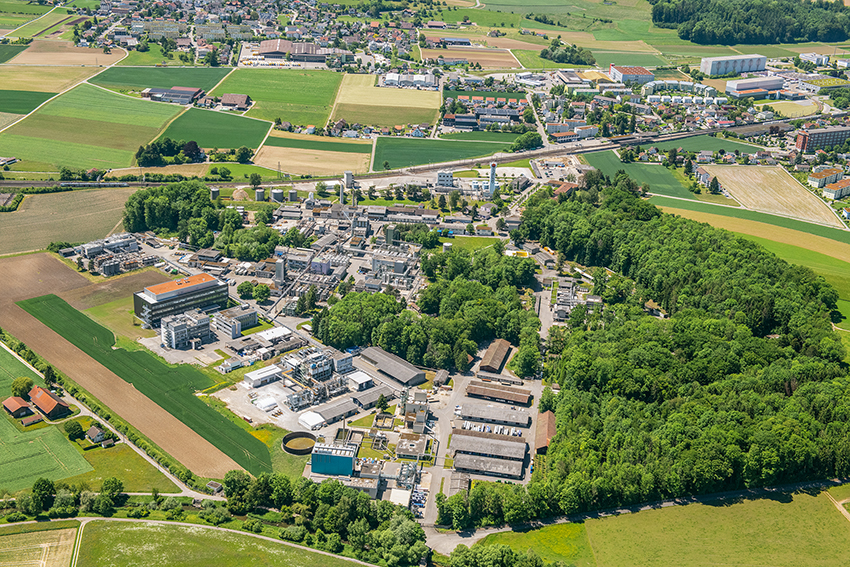
Dottikon builds for small molecules
Submitted by:
Andrew Warmington
Swiss CDMO Dottikon Exclusive Synthesis (ES) is in the process of investing around CHF 700 million (€730 million) in new production and drying plants for APIs at its production site in Dottikon. Of this, CHF 400 million has already been spent, with half of the rest coming in the current business year to 31 March 2025.
The production plant will have four trains, two with three 10,00L reactors and two with three 6,300L reactors. It will be multi-purpose but with capabilities in the hazardous reactions that Dottikon ES is best known for, and will be commissioned stepwise in 2025. A pilot plant will follow later.
“This is the largest multi-purpose plant that is currently being built,” said CEO and majority owner Dr Markus Blocher, who was speaking with SCM at Chemspec Europe in Düsseldorf on 16 June. Features include cleanrooms for charging and containment down to 1 µ/mg3.
The drying plant will become operational in 2024. It features four completely independent suites, containing 3,000L spherical dryers, cleanrooms and micronisation. The company is also adding a new warehouse, photovoltaic systems, redundant grid connections and a back-up electricity supply plant connected to a new waste treatment plant, which will be commissioned this year.
The investments will almost double capacity at the site and, the company said, enable it “to capture disproportionally high market growth in the custom process development and manufacturing of innovative patent-protected small-molecule APIs”. They are also, Blocher agreed, a vote of confidence in small molecule drugs.
Over the past five years, the company had been growing at an average of 17%/year on the back of strong demand, in part because of later-stage projects being reshored from Asia. This fell to 2.1% in the 2023-4 business year, when net sales were CHF 326.3 million. This was largely because of the constraints imposed by limited capacity, making it necessary to invest further.
“It’s important that these plants are being commissioned so that we can continue to grow,” said Blocher. “Growth comes mainly from innovative products coming up to or post-approval. The Inflation Reduction Act has meant that once products are launched, they are pushed into the market much faster because the period without price control has been shortened.
“Established products are also seeing larger demand, which I think has to do with COVID making people more sensitive to their health condition and going to their doctors earlier. The other element is derisking from geopolitical risk, so there is more back-integration and diversification of supply. GMP capacity has got tighter and comes at a premium.”
